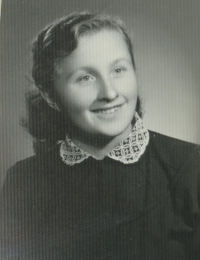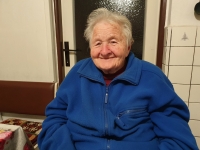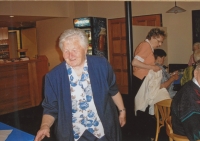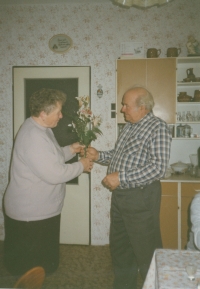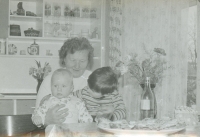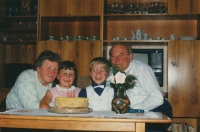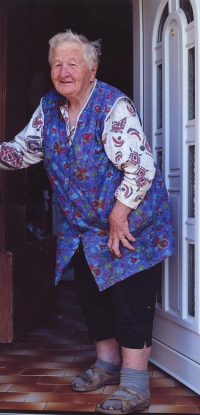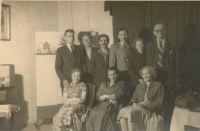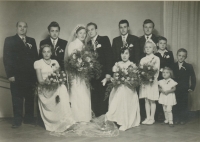My husband was a wonderful person. He never held the fact that I was German against me
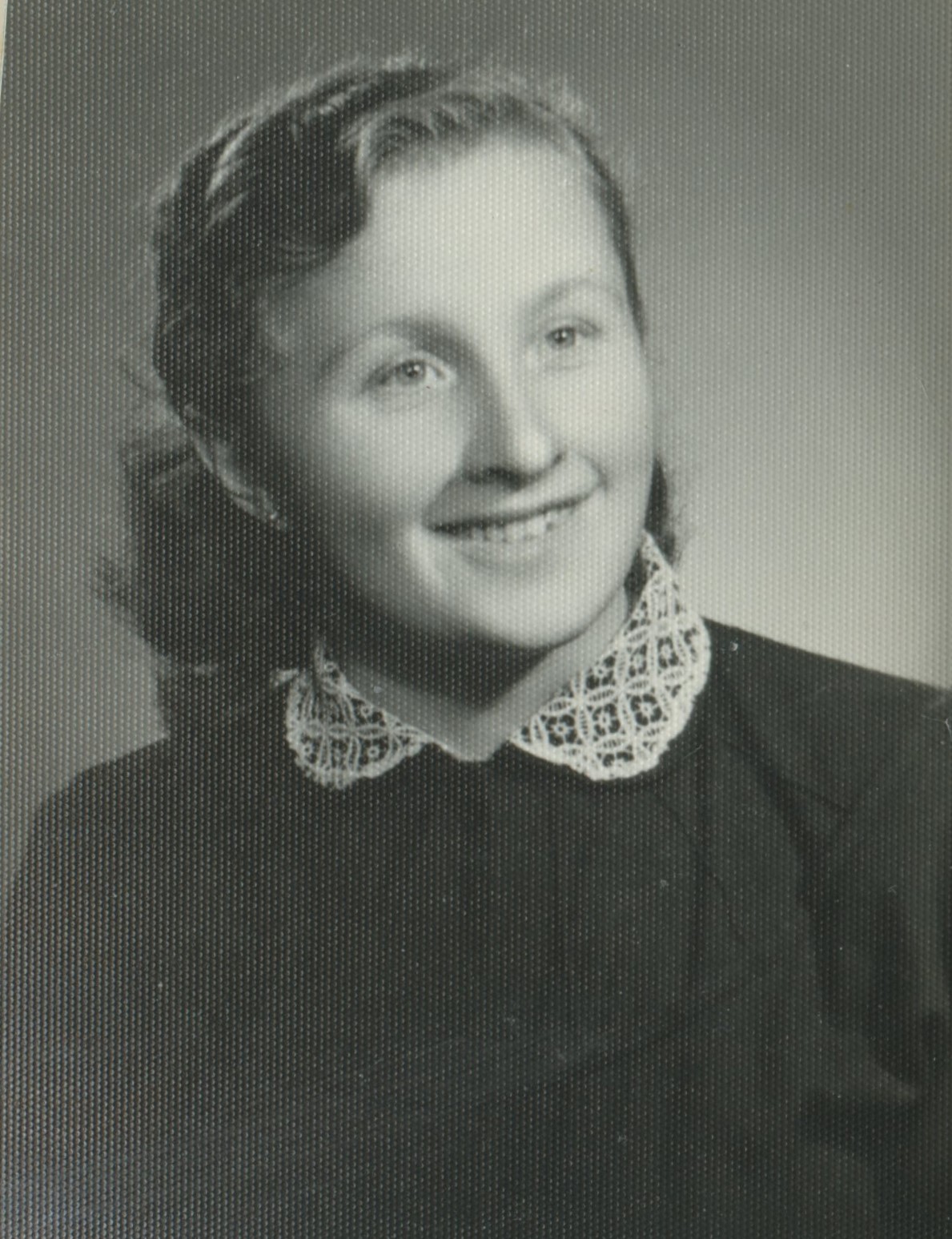
Download image
She was born as Marie Freislebenová on 2 July 1934 in Bystré u Poličky. Her mother came from the German family of Mangold from close Schönbrunn (Jedlová u Poličky in Czech). When Marie was about a year and half, her parents sent her for upbringing to a childless family of her uncle (her mother´s brother) Ludvík Mangold. Maria´s real father was Czech who having argued with his brothers joined the Germans and was called for the Wehrmacht but he committed a suicide before the departure. Her foster uncle Ludvík also had to enlist and even though he survived the war, he never came back to Jedlová. The majority of Schönbrunn citizens were deported, the first transport left only month after liberation on 13 June 1945. Marie was considered a child from a mixed marriage and she did not have to be deported. However, majority of her relatives and her childhood friends left. She got married to a Czech Puchar from Korouhev and they raised two children together. She worked in Hedva textile enterprise till her retirement. She was in touch via letters with Germans from Schönbrunn her whole life.
